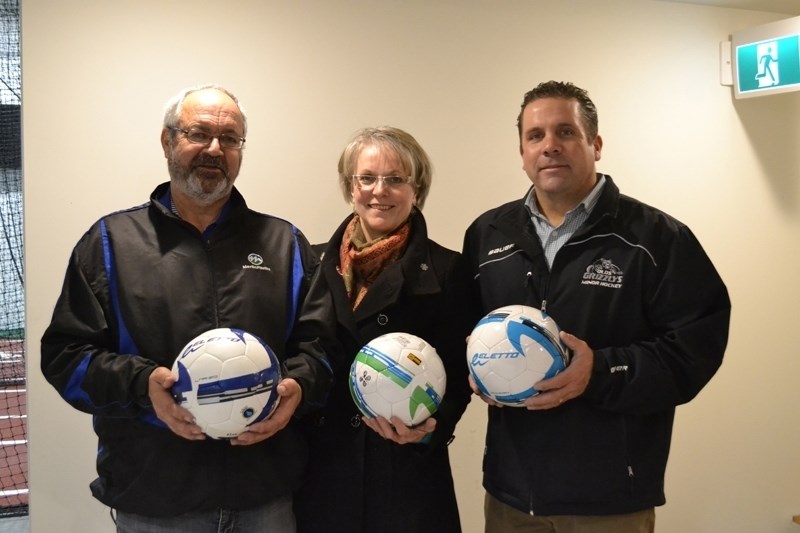An Olds man says a journey he and his wife embarked on in Honduras to help improve the lives of people there was a great success.
Brian Johnson and his wife Adeline returned recently from Roatan, an island off the coast of Honduras. They were there for about a month on a combination holiday and volunteer project. This was their third trip to the area to help improve the lives of residents there.
One objective was to construct a building for a kindergarten.
"When we got there, it was just kind of a lean-to. So when the wind blew and the rain came in, they had to shut their school down," he said during an interview with the Albertan.
Another goal was to help residents - primarily women - learn how to sew so they can make their own clothes rather than buy them, and create items to sell.
A third objective was to distribute 15 soccer balls to needy residents and soccer clubs. The balls were donated by Darcy Cruickshanks, owner of Digger Sports in Olds. Several other businesses and local residents also donated toward the trip - in kind or otherwise.
The Johnsons worked in tandem with humanitarian groups.
In the case of the kindergarten, Johnson says they got the building closed in, but it still lacks at least one window and door.
He's now raising money by doing odd jobs in Olds and area to cover the cost to obtain the windows and doors and install them. His guesstimate is that will cost about $1,500. When interviewed, he had raised about $350 toward that goal.
As for the soccer balls, some were given to youth in one area of Roatan. Others were distributed on another nearby island.
"Our objective with the soccer balls was certainly to distribute them where we could and certainly did that," Johnson says.
The poverty was his biggest takeaway though.
"I think this time, my biggest take of the whole thing is just how desperately poor these people are," Johnson says.
"I asked a guy to pick up a bag of nails for me because he was going by and I wasn't. He just said he didn't have enough money for that -- and it was like $6 or $8."
Johnson says stores there don't even have enough money to change C$10 into lempiras, (Honduran money. As of April 11, one lempira equalled 57 cents Canadian).
"In the stores, they don't have the money to do it. Like, a 500-lemp bill is about $25 (Canadian)," he says.
"A lot of times if you go into a store, they won't have enough money in their till to change it. You're buying a 200-lemp item and they don't have another 300 limps in their till."
He says one big factor is that Roatan is a tourist attraction and unless residents speak good English, there aren't very many good jobs for them there.
Even his helper couldn't afford to drive there because his car was "injured" as he put it. He didn't have enough money to repair his car.
There was no real infrastructure where the school is located either.
"There's no power, there's no water system. It's just an area that has been kind of (set aside for that)," he says.
In order to work on the school, Johnson had to bring in a generator. It worked for several hours, then quit. They had to get power another way.
"So a one-day job with three guys turned into a four-day job," he says. "It's just part of Honduras - part of living down there - and accepting that things are different down there than they are here and understanding that."
While Brian was working on the school, etc., Adeline helped local ladies make clothing they could wear or sell.
She also helped out in the library, teaching English to young people.
That was an experience too.
"That's one of the things. They determine their own time schedule. If you say ëbe there at 9 o'clock,' they might show up at 10 o'clock, 10:30, or they might not show up at all; or they might be there at 8:30. So it's hard to organize children especially - to come to a specific class on a specific time," Johnson says.
Overall though, he deems the visit to have been a success.
"We had some great experiences and met more people and got some better grasp of the conditions, the culture and how they operate versus how we operate in Canada," Johnson says.
"They generally -- in my thinking - live day-to-day and don't worry too much about tomorrow, like we have a tendency to worry about tomorrow so much. So that was a great experience - a good thing to learn - that you need to just take a break from all the pressures of society."
"I asked a guy to pick up a bag of nails for me because he was going by and I wasn't. He just said he didn't have enough money for that -- and it was like $6 or $8."BRIAN JOHNSON



